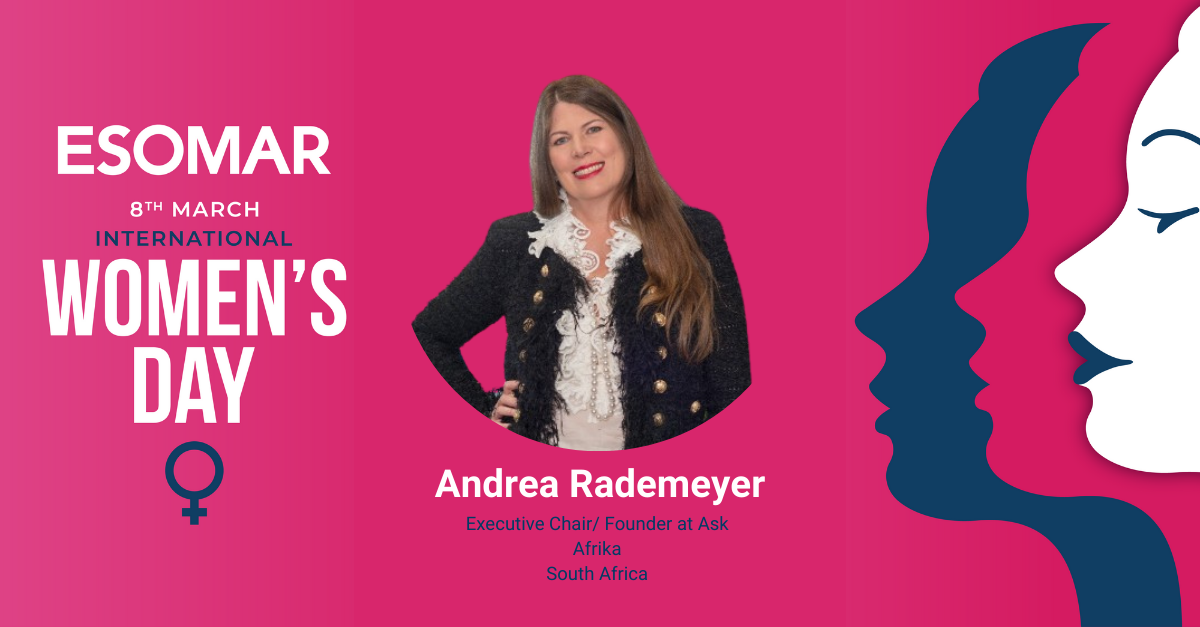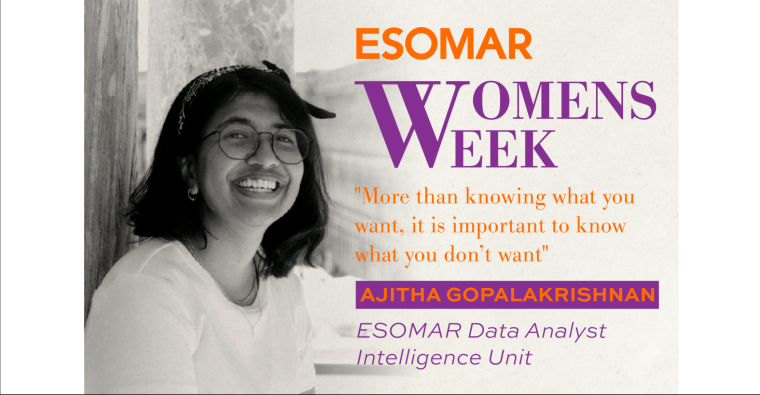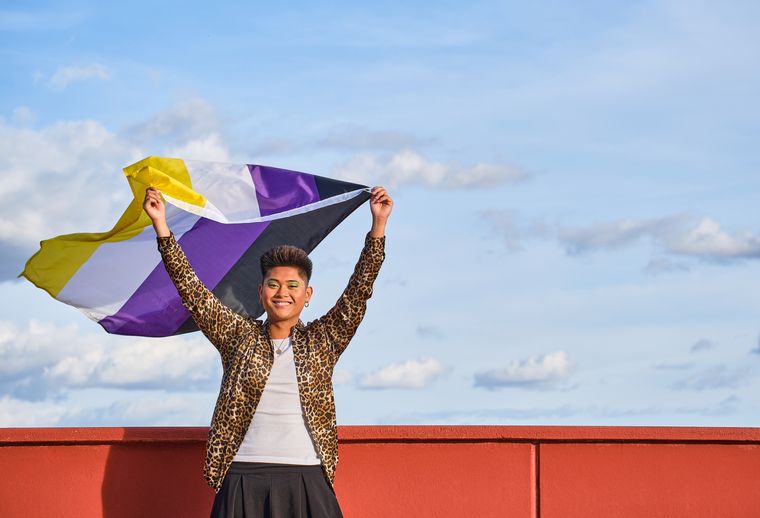Women in Research: Andrea Rademeyer
"It took me about 30 years to admit that there is a place for feminists or female quotas in business."

Article series
International Women's Day
It took me about 30 years to admit that there is a place for feminists or female quotas in business. Since quotas are so intricately linked to questions of competence - unfairly and distractingly - I chose to enter the game without a parachute. Despite this, I believe it should be the place of market researchers to use their experience to push female-centric respondents for other research areas, such as pharmaceutical, automotive, space, and other research, for all the known reasons. The primary leaning of research towards the male gender is bizarre and misleading.
Having to rely on my own wit and energy to build a professional business in a competitive industry dominated by stellar global groups requires tenacity and flexibility, a sense of humour, and a genuine interest in people.
After a couple of degrees in Psychology, I discovered the hallowed halls of INSEAD and Harvard Business School - books are as addictive to me as an acorn to Scrat. For the quality of my thinking, I would rate as equally important to my academic studies, my other pursuits as a classical flautist, political activism, and my passion for leadership development.
In 1998, I founded Ask Afrika with a mission to provide ethical market research services that help businesses and organisations make informed decisions. Under my leadership, Ask Afrika has flourished, becoming a beacon of innovation, integrity, and reliability in market research. Early on, I established myself as a pioneer in the market research industry in Africa - I was one of the very first to install CATI centres and developed then revolutionary cellular CAPI systems, followed by various benchmarks across some 30 industries.
Ask Africa’s accomplishments are numerous. The company has been the recipient of several prestigious awards, reflecting our commitment to methodological excellence and client utility. My personal accolades, including the Alumni Laureate, Businesswoman of the Year, and various others, underscore my leadership and business acumen. I am also a recipient of the ESOMAR 250Legends award, besides steering the 2024 Congress committee as the Congress Chair 2024.
My influence, however, extends beyond the confines of market research. It is impossible to be an African and not have a deep understanding of the accountability that comes with privilege. I am an advocate for education and empowerment. My scholarship program for market research students is a testament to my dedication to nurturing the next generation of industry leaders. My community development work, focused on improving living conditions and access to essential services, illustrates my belief in corporate social responsibility. Projects focusing on managing addictions in families and many projects supporting the arts are based on my belief that it takes both basic human dignity and the arts to make the human spirit soar and build better communities.
I am still supremely excited about the potential of the market research industry since, at the moment, the industry perfectly overlaps with one of the core crises of humanity - Fake News and plummeting Trust in public figures. Now is the time for the market research industry to be very vocal about the truth offered by our way of work.
My impact on the market research industry and my commitment to social betterment make me an exemplary figure to celebrate this International Women's Day. As ESOMAR champions the growth and influence of women in market research, I strive to be a role model who embodies the qualities of leadership, innovation, and compassion.
On this International Women's Day, as ESOMAR advocates for the advancement of women in market research, we celebrate my company, Ask Afrika, which employs around 70% women and has most leadership positions filled by women. My story is not just one of personal success but also of the broader potential of women in leadership to effect positive change in their industries and communities. On International Women’s Day, in March, in the year, decade and forever on, we celebrate the achievements of all women in market research, whose contributions continue to shape the future of this dynamic industry.
As ESOMAR champions the growth and influence of women in market research, I strive to be a role model who embodies the qualities of leadership, innovation, and compassion. My company, Ask Afrika, employs around 70% women and has most leadership positions filled by women. My story is not just one of personal success but also of the broader potential of women in leadership to effect positive change in their industries and communities. On International Women’s Day, we celebrate the achievements of all women in market research, whose contributions continue to shape the future of this dynamic industry.


